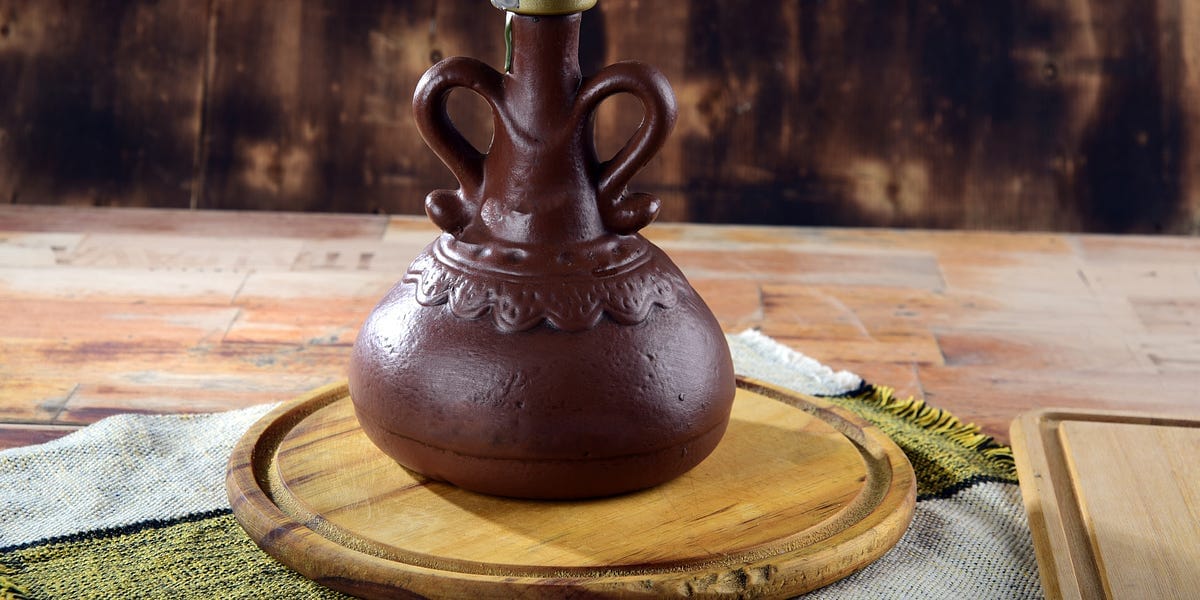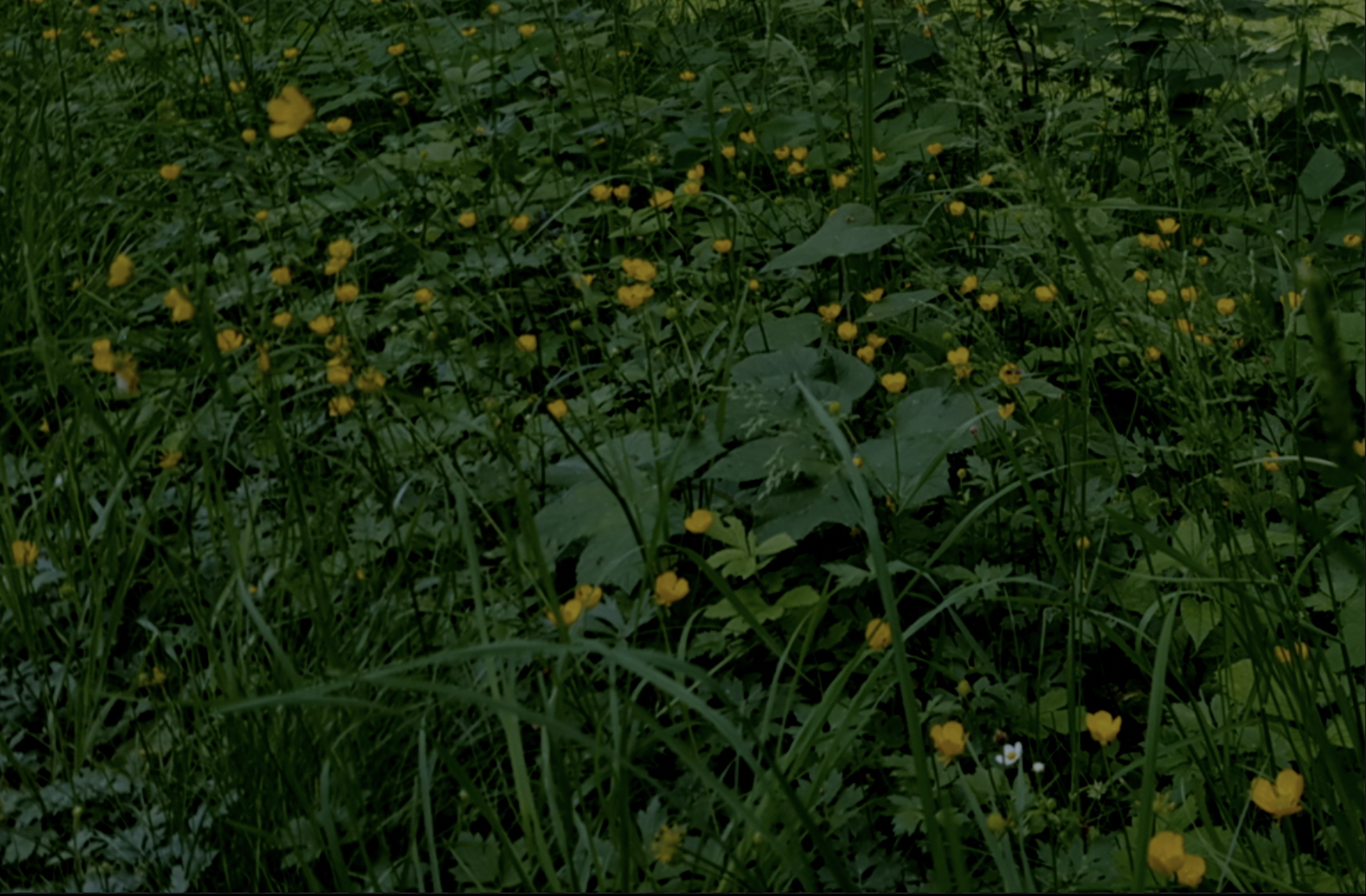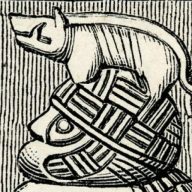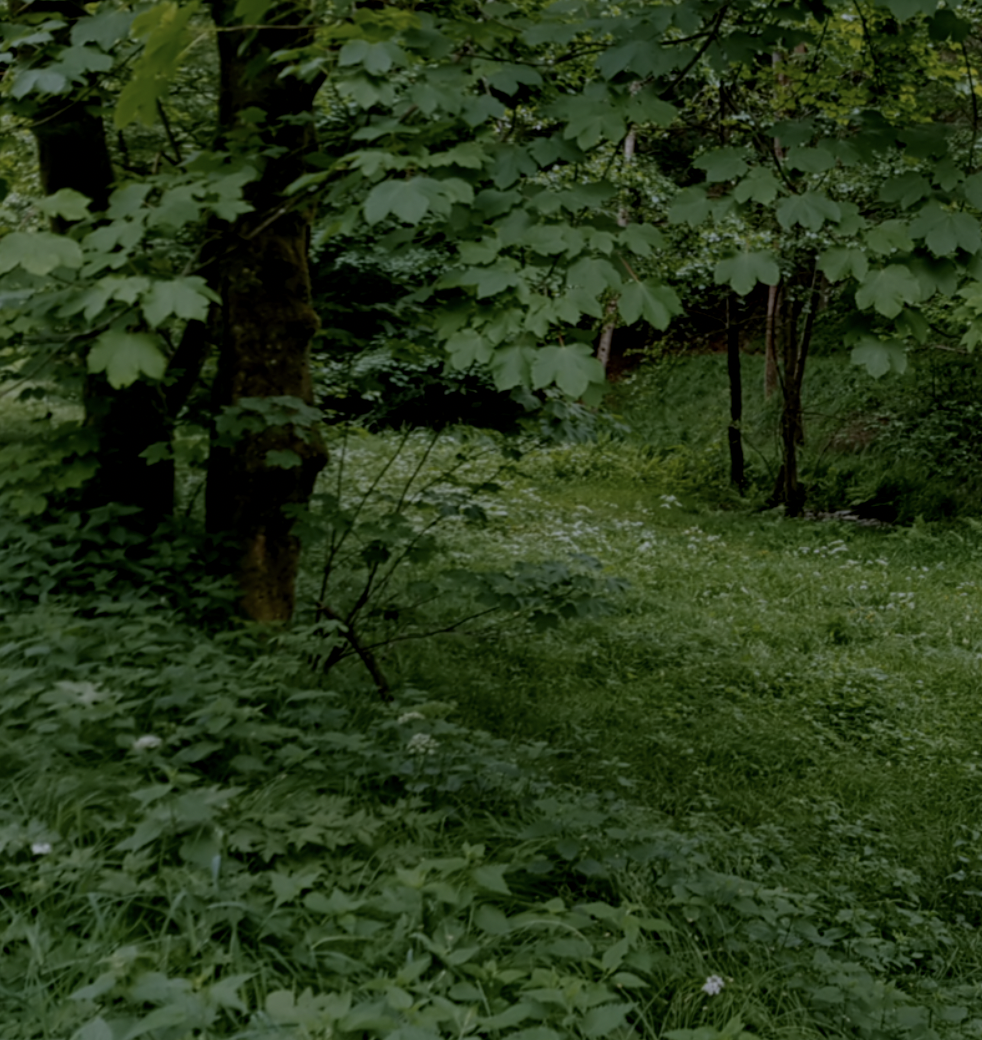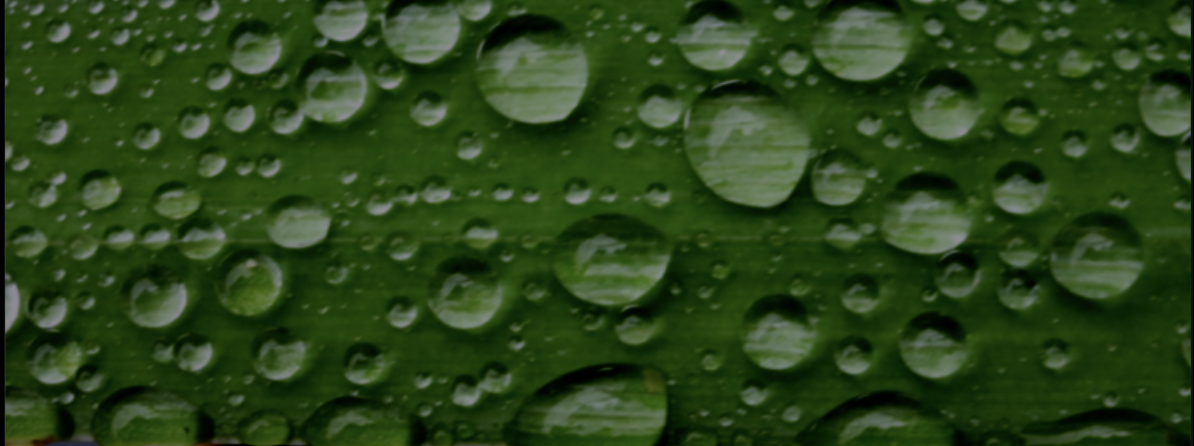Jude-Art
The Book of Judith, interpreted across the ages
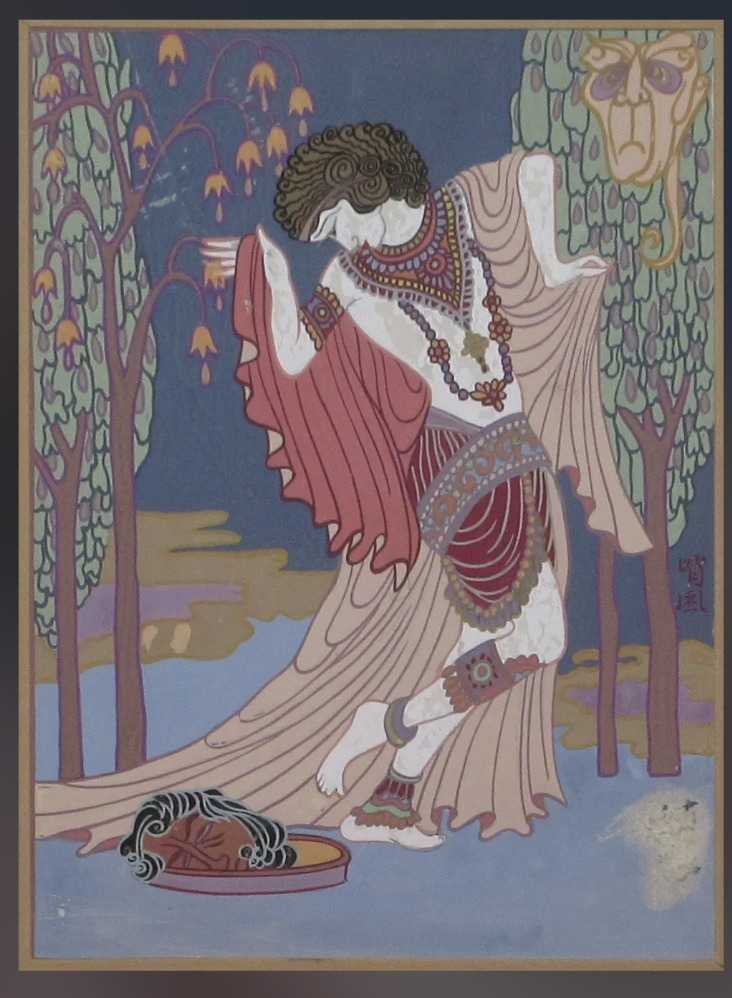
This is Life as a Sacred Text 🌱, an everybody-celebrating, justice-centered voyage into ancient stories that can illuminate our own lives. It‘s run on a nonprofit, so it’s 100% NAZI FREE. More about the project here, and to subscribe, go here:
Happy almost Hanukah/Erev Erev Erev Hag Urim Sameach! Merry almost Christmas! Heri Za almost Kwanzaa! Belated Yaldā and Solstice Blessings!
As you may know, the Book of Judith is regarded as a Hanukah tale (real or mythic, it's thought to be "about" the Maccabee war) and a couple of years ago, I annotated a version of the story, which is fan favorite for good reason. (The post, yeah, but the Book, really.) Who doesn't love a a feisty heroine, a sharp blade, a multipurpose snack bag and a happy ending? Honestly.
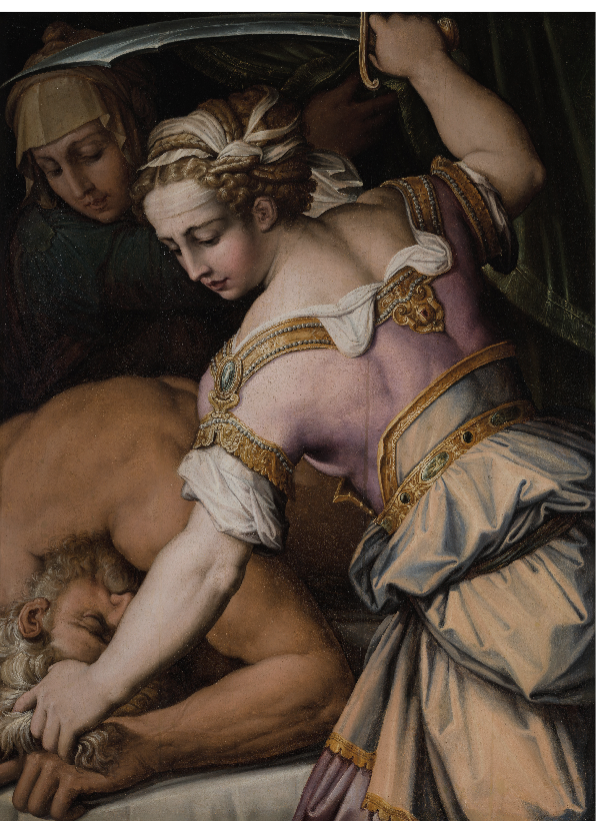
No, but really: We should also celebrate reusable tote bags on Hanukah.
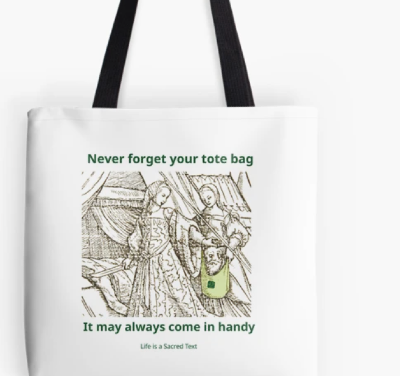
And because of the enduring fascination for her as both a Hanukah heroine as well as in Christian culture, we've got tons to draw on over the years for this story. So today we're going to look at some artistic interpretations of the story. (Go to the original post above to get the basics, first.)
Primarily, we'll have a look at a killer, if incomplete, Old English poem that was found in the same manuscript as Bēowulf, dating to 975–1025 CE. It's often thought to be by a guy named Cynewulf, or one of his students.
Thanks to S.I. Rosenbaum for introducing me to this beaut of a text!
I'll include first the poem in modern English, and then the old Old English version, since it's kinda cool to see. Then I'll share a couple of other Judith Art Things. Just because it's so fun. Clearly, we're missing parts 1-8 of this poem; I've heard say that it would be undoubtedly the greatest contribution to Old English literature, had we gotten our hands on the whole thing. This is very very much not my lane, so I'll just pass on this note, without personal evaluation.
Needless to say, we see Judith reflecting the many eras and times in which she is enshrined in art– here, unsurprisingly, the setting is knightly and courtly.

You can read the poem in the original Old English after, or concurrently, here:

And if you'd like to see the meaty heart of it performed, that can happen here– the beginning and ending of the poem is omitted, and it's a slightly different translation than the one we've got below, but Nora Garrett does a lovely job animating the text:
And here's the poem:
IX.
… She doubted not
his gifts in this wide earth. Then she readily found there
protection from the famous God, when she had most need
of favor from the Highest Judge, the Wielder of Creation
so that he should protect her, against the highest terror.
For that reason the glorious Parent in heaven
performed her boon, so that she always possessed strong faith
in the Almighty. I have heard then that Holofernes
eagerly made invitations to wine and prepared a magnificent banquet
with all sorts of wonders—the lord of men summoned to it
all the eldest thanes. They obeyed him very speedily,
the shield-bearing warriors, they came traveling to that powerful prince,
the leader of the people. That was on the fourth day
when Judith, wise in her thought,
a woman elf-brilliant, first sought him. (1-14)
Then they went to sit down to the feast,
proud at the wine-drinking, all his woeful companions,
bold byrnied warriors. There were deep bowls
frequently borne along the benches, likewise cups and pitchers
filled for the floor-sitters—they received them, doomed to die,
brave shield-warriors, though the powerful one did not believe this,
the terrifying lord of earls. Then Holofernes,
the gold-friend of men, became joyful at carousing—
he laughed and bellowed, he sounded and resounded,
so that the children of men could hear him from afar,
how the ferocious one stormed and yelled,
proud and flushed with mead—he frequently exhorted
the bench-sitters that they rejoice themselves well. (15-27)
So the wicked one, for the entire day,
drenched his own retainers in wine,
the stern dispenser of treasure, until they lay in a swoon,
all of his troop for drunken, like they had been struck by death,
drained of every good. So the lord of men ordered
his hall-sitters to be served, until the dark night approached
the children of men. Then he ordered, mixed up in evil,
the blessed maiden to be swiftly fetched
to his bed, adorned with bracelets,
decorated with rings. They quickly performed,
the serving men, as their lord commanded them,
the leader of byrnied warriors, stepping into the revelry
into the guest-hall where they found spirit-wise Judith,
and then quickly the shield-warriors began to lead
that bright maiden to the high tent where the powerful one,
Holofernes, always rested himself during the night,
hateful to the Savior. (28-46a)
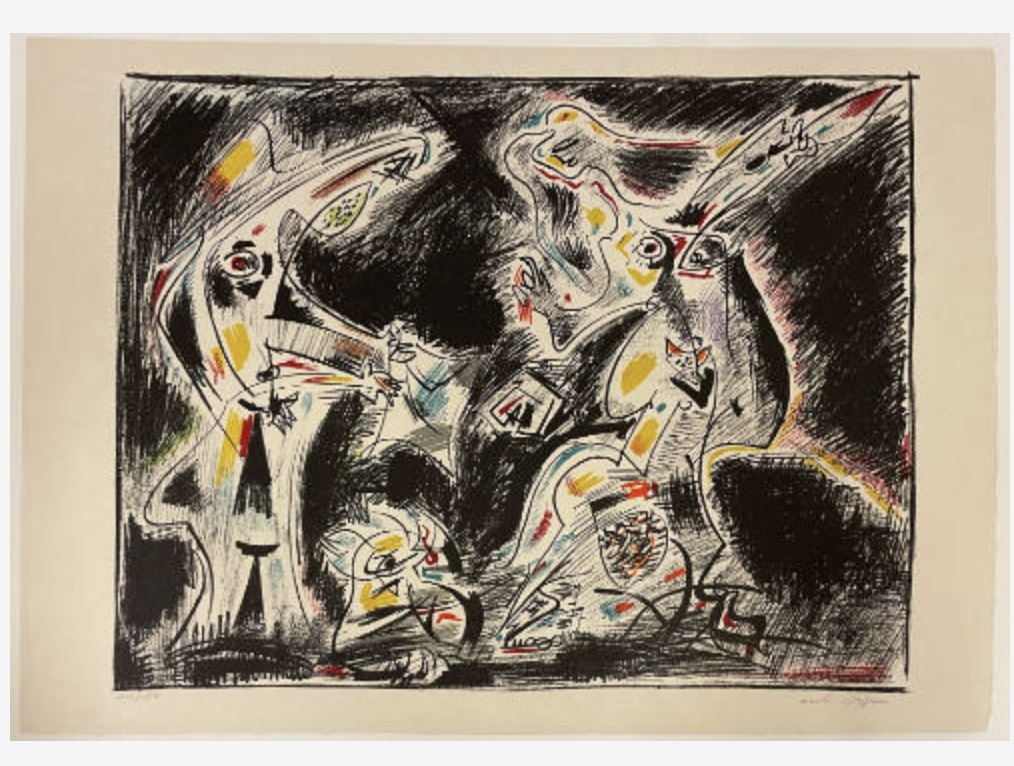
There was a fly-net there, all-golden and fair,
hung up around the bed of that general, so that the baleful one
could peer through, the lord of warriors,
onto each of the sons of men, who came within there,
and none of the kindred of men could look upon him,
unless he, mindful man, should command
one of his malicious and bold warriors
to come nearer to him for secret consultation. (46b-54a)
Then they swiftly brought to bed that wise lady—
Then the hard-hearted heroes went inside
to reveal to their lord that the holy woman
had been brought into his tent. Then the notorious one
lord of cities, became happy in mind—he intended to defile
that bright lady with pollution and with stain. But the Judge of Glory,
Warden of Power, did not wish to consent to that deed,
but steered him from that thing, the God, the Sovereign of Hosts. (54b-61a)
Then the devilish man, that wanton and evil warrior, departed
with a troop of men to seek his bed, where he must lose his life
at once, within that one night—when he had attained his violent
end on this earth, such as he had striven after before,
this severe prince of men, while he dwelt in this world
under the roof of clouds. Then the powerful man fell
so drunk with wine in the middle of his bed
so that he knew no counsel in his mind-lock.
The warriors stepped out from within with great haste,
wine-sated men, who had led the pledge-breaker,
the abominable tyrant to his bed for the last time. (61b-73a)
Then was the Savior’s glorious servant
sharply mindful how she could deprive most easily
that monster of his life before that stained and impure one awoke.
Then the curly-haired maiden of the Shaper seized
the sharpened sword, hardened in battle-showers,
and tugged it from its sheath with her right hand.
Then she named the Guardian of the Skies
by name, the Savior of all worldly dwellers,
and she spoke these words: (73b-82)
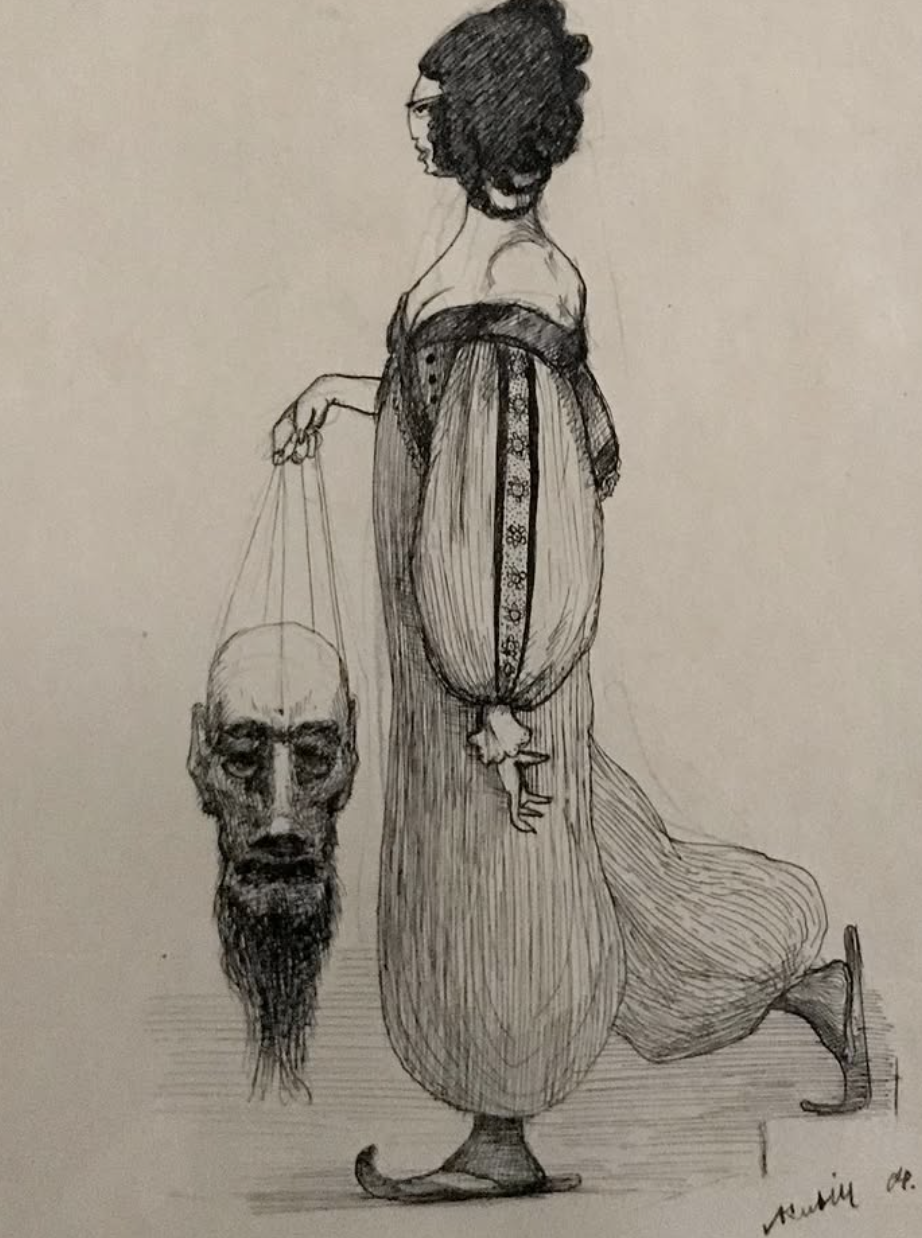
“I wish to ask you, God of Origins
and Spirit of Comfort, of the All-Wielding,
Glorious for your mercy to a needy me.
Severely is my heart inflamed now
and my mind is troubled, greatly afflicted with sorrows.
Give me, Lord of the Skies, victory
and true belief so that I might cut down
this dispenser of crimes with this sword—
grant me my prosperity, Stern Ruler of Humans.
I have never had more need for your grace than now.
Avenge now, mighty God, illustrious Dispenser of Glory,
what is thus miserable in my mind, blazing in my heart.” (83-94a)
Then the highest Deemer inspired her at once with courage,
as God does for every single of the mortal dwellers
who seek God out as help with good sense and right faith.
Then abundantly in her mind hope was renewed for the holy woman—
then she seized the heathen man fast by his hair,
dragging him towards her with her hands shamefully,
and skillfully laid out the baleful one, the hateful man,
as she could most easily manage the accursed one well.
Then she, curly-haired, struck her hateful enemy,
with the splattered sword. She chopped through half his neck,
so that he lay in a daze, drunken and maimed. (94b-107a)
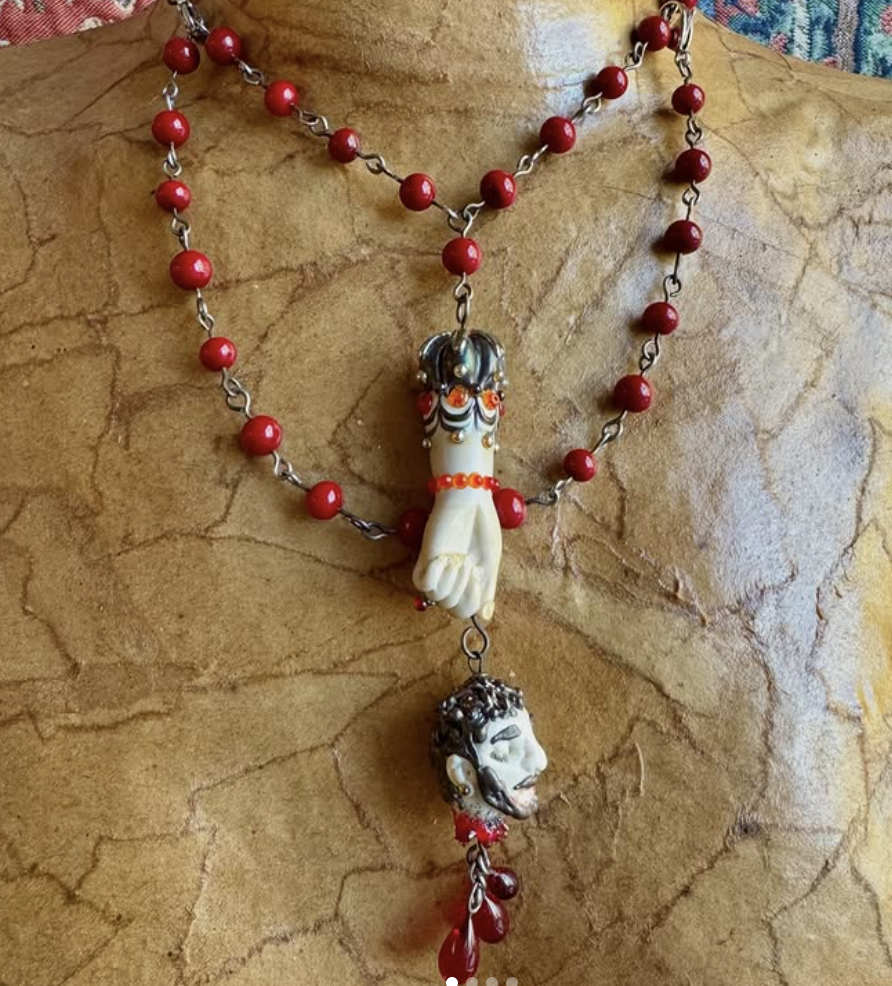
He was not dead yet then, not entirely lifeless—
then the courageous lady struck the heathen hound
another time so that his head rolled
forth on the floor. The foul carcass lay behind dead—
his soul departed elsewhere under the deep chasm
and was prostrated there, sealed in torment forever afterwards,
wound up with worms, bound up with torments,
cruelly captived in burning hell after his departure.
He had no need to hope at all, enveloped in shadows,
that he might go thence from the hall of dragons,
but instead must dwell there for ever and ever, forwards without end
in that shaded home, deprived of hopeful joy. (107b-21)
And so Judith had won an illustrious reward in warfare,
just as God had granted her, the Ruler of the Skies,
who had given her victory. Then the mindful maiden quickly placed
the warrior’s head so bloody into her foodsack which her attendant
a pale-cheeked lady excellent in her ways had brought
food for them both, and then she gave it, so gory, into her hands,
the prudent lady, in order for her to bear it home,
Judith’s own young handmaiden. Then they went directly there,
both these courageous ladies, until they came out, stout-hearted
triumphant maidens, from that army-camp so that they might
be able to see clearly the lovely walls of their city Bethulia glisten. (122-38a)
Then they, adorned in rings, hurried forth along the footway,
until they glad-minded, had reached the wall-gate.
Warriors sat there, watching men and keeping guard in the fortress,
just as Judith had ordered those misery-minded people before,
the clever-thoughted maid, when she departed on her journey,
a courageous lady. Then the beloved woman was returned
again to her people and then the wise-minded woman
soon ordered one of the men from the broad city
to come towards her and hastily let them inside
through the gate in the walls, and spoke these words
to the victorious people: “I can say to you all
a memorable thing so that you need not
mourn in your minds any longer. The Measurer is happy with you,
the Ruler of Glory—that has become revealed
throughout the wide world, that the splendid fruit of glory
is approaching you and triumph is given to you
over those afflictions which you have long endured.” (138b-58)

Then the city-sitters became elated after they heard
how the holy one spoke over the high wall. The army was joyous,
and people hurried to the stronghold gates,
and men and women together pressed forward and ran,
in bands and troops, crowds and throngs, by the thousand
towards the Lord’s woman, old and young. The hearts of everyone
in the mead-city became gladdened after they perceived
that Judith had returned to her homeland,
and then hastily and reverently they let her inside. (159-70)
The wise woman, fretted in gold, ordered her servant
prudent-minded to unwrap the head of that warrior
and to display it, all bloody as a sign to the city-folk,
to testify how she had found victory in battle.
The noble one then spoke unto all those people: (171-76)
“Here you can clearly gaze, victorious heroes,
upon the leader of his nation, upon the head
of the most hateful heathen warrior, Holofernes unliving,
who, among men, did us the worst crimes,
grievous afflictions, and wished to increase them
yet even more, but God would not grant him
a longer life so that might torment us
with wrongs—I deprived him of life
by the help of God. Now I wish to ask
each of these men, these city-folk,
these shield-warriors, to hurry yourselves
swiftly to battle after the God of Creation,
the Mercy-fast Ruler, has sent from the east
the radiant beam of light. Bear your shields forth,
shields before your breasts and mailed-shirts,
gleaming helmets, into the troop of your enemies
and fell their commanders with splattered swords,
the fated first-spears. Your enemies have been
adjudged to death, and you shall own the glory,
honor in the battle, just as the Mighty God
has betokened to you all, through my hand.” (177-98)

Then the host, keener and braver, was readied quickly
for battle. Noble men and their comrades stepped out,
bearing triumphant banners, heroes under helmets faring forth
to battle right away, from the holy city, on that same dawn-clash—
their shields crashed, resounding loudly.
For this reason, the lean wolf in the wold
rejoiced, and the dark raven, a bird greedy for slaughter.
They both knew that these men intended to provide them
a feast from the fated, moreover the eagle flew
in their tracks, eager for food, dewy-winged,
dark-plumed, singing a battle-song, horn-beaked. (199-212a)
The warriors went forward, men to the battle, covered by their shields,
their hollow shields, those who had previously
suffered the scorn of the strangers,
the insults of the heathens. In the play of spears
it became fully requited to all of the Assyrians,
after the Hebrews had gone under their battle-standards
to their camps. Then they boldly let fly forth showers of arrows,
battle-serpents from horn-bows, sturdy missiles—
they stormed loudly, angry warriors, sending their spears
into the press of the cruel. The heroes were angry,
dwellers of this land, at the hated race, stepping forth resolutely,
determined, and they ungently roused their ancient foes,
mead-weary—the retainers tugged with their hands
bright-flecked swords from sheaths, their trusty edges,
and struck earnestly the Assyrian warriors, those malicious schemers,
sparing not one of those battle-men, neither low nor powerful,
those living men whom they could overcome. (212b-35)
So the retainers in the morning-time chased down the strangers,
for the whole time until the lead-warriors of that militant people,
who were hostile, perceived that the Hebrew men had shown
a severe sword-swinging to them. Wordfully they went
to reveal that fact to the most senior of the lordly-warriors,
awakening the pennanted soldiers, and fearfully announcing
the frightful news—the morning-raid, the terrible play of blades—
to the mead-wearied. Then I heard at once
that the warriors doomed to die shook off their slumber
and the fallen-spirited went thronging in a crowd
to the sheltering tent of the baleful one, Holofernes.
They intended at once to announce the battle to their lord
before the terrible power of the Hebrews.
They all thought that the lord of warriors
and the bright maiden lay together inside that lovely tent,
the noble Judith and the lecherous one, terrifying and fierce. (236-57a)
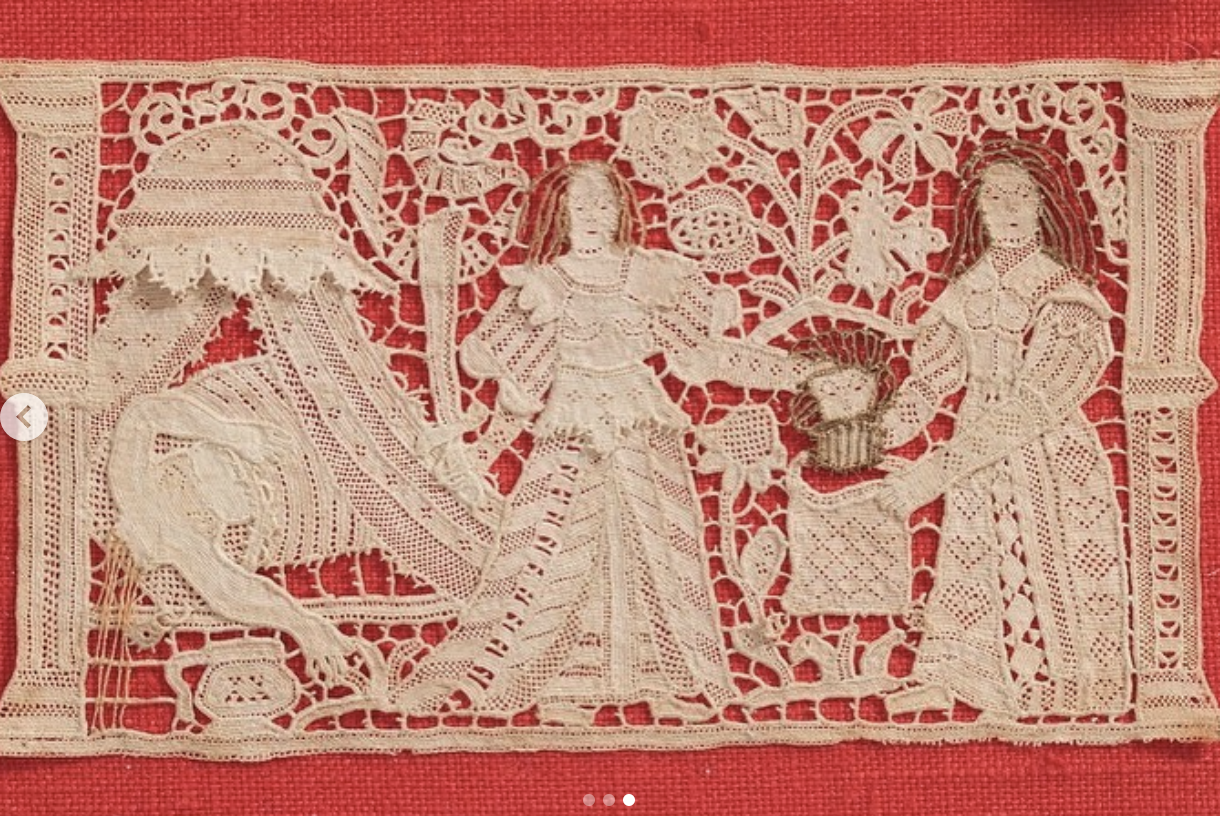
There was not one of the nobles though who dared
to wake up that warfaring man or to discover how
the warrior had done with that holy woman,
the maiden of the Measurer. The armed might of the Hebrew people
drew nearer, fighting fiercely with hardened battle-weapons,
requiting with blades their ancient quarrel,
with splattered swords, their elder grudges.
Assyrian glory was diminished by that day-work,
their pride humbled. The warriors stood around
the tent of their lord, quite troubled, with downcast spirits.
Then they all together began to cough, making loud noises
and gnashing their teeth, deprived of the good, enduring grief.
Then was the end of their glory, of their blessings,
and their brave deeds. Then the earls considered how to awaken
their friendly lord—it prospered them not a jot. (257b-74)
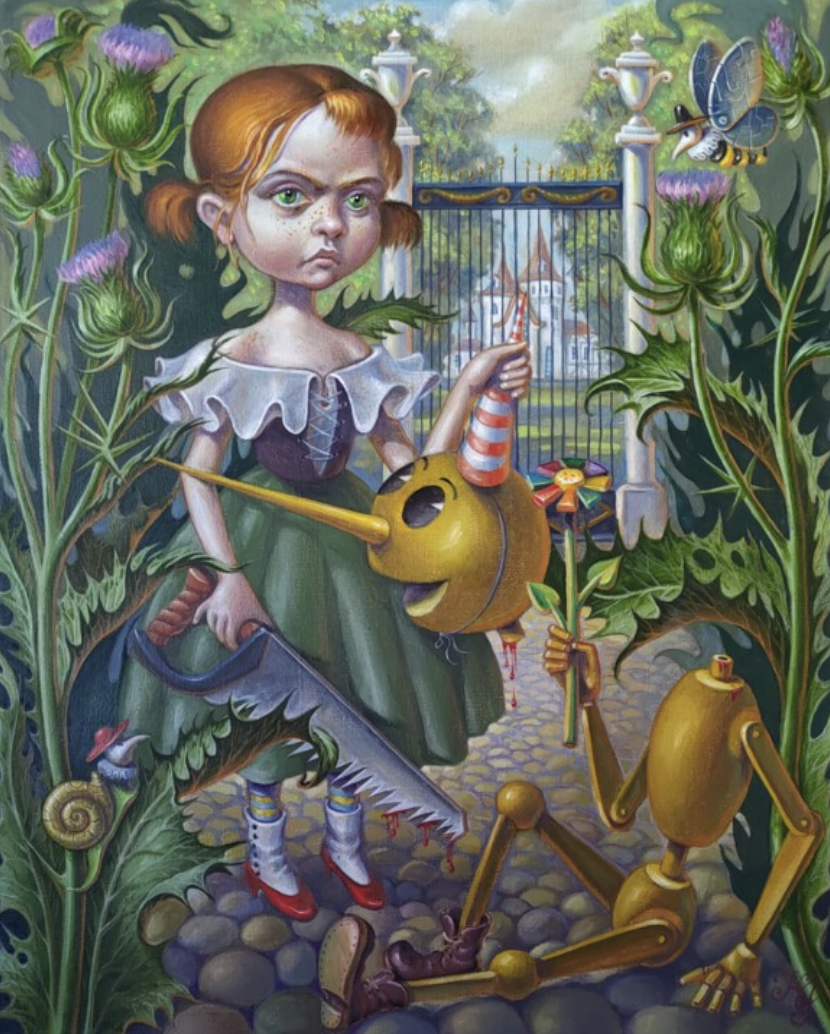
It became later and later; then one of the warriors
became so bold that he ventured daringly into the tent,
their need so drove him. He found then on the bed his pale lord
lying deprived of spirit, void of life.
Then he fell at once, trembling to the earth,
beginning to tear at his hair, troubled at mind,
and his garments too, and he spoke these words
to the warriors who stood dejected outside:
“Here is revealed our very own destruction,
the future prefigured, so that it is approaching
the time with malice which we must by necessity
be lost, perishing together in strife:
Here lies, hewn by the sword, our lord, beheaded.” (275-89a)
Then they, sad-hearted, cast their weapons down,
turning themselves, weary-souled, to hasten in flight.
They fought them in their tracks, a mighty people,
until the greatest part of that army lay,
abased by battle in the field of victory,
hewn by swords, as a pleasure to wolves,
a comfort as well to the slaughter-greedy birds. (289b-96a)
Those who lived fled away from the shield-warriors of the enemy.
In their track came the army of the Hebrews,
worthied by victory, glorified by judgment—
The Lord God, the Master Almighty helped them fairly.
Then quickly they, the mind-brave warriors,
wrought a war-path with splattered swords
through the scrum of their enemy, hewing shields,
rending their shield-wall. The archers were
enraged in war, the Hebrew men—
the thanes at that moment greatly yearned
for the struggle of spears. There in the sand fell
the highest number of the head-count
of the lordly multitude of Assyrians,
that hateful stock—few of them returned
alive to their kinfolk. (296b-311a)
The very brave warriors
turned back upon their retreat, within the carnage,
the reeking corpses. There was room for the native-dwellers
to take from the most hated, their olden-foes
unliving, gory trophies, lovely ornaments,
shields and broad swords, shining helmets,
valued treasures. The wardens of their homeland
had gloriously conquered their foes,
the ancient enemy, on that place of the people,
put them to rest with swords. They rested in their swath,
those who in life had been the most hateful
of living men. (311b-23a)
Then the entire generation,
the greatest of nations, proud and curly-haired,
for the space of one month carried and led
into their bright city of Bethulia,
helmets and short swords, grey byrnies,
the battle-armor of men, fretted with gold,
greater treasures than any clever-minded
could tell—all that was obtained by the force of men,
keen under the banners in the battle
through the prudent counsel of Judith,
the brave lady. The spear-brave earls
brought as a reward from that venture
the sword and bloody helmet of Holofernes,
and also his broad mail-shirt, adorned with red gold,
and all that the arrogant lord of warriors
owned of treasure or moveable goods,
rings and bright treasures—they gave that
to the bright and clever-thoughted woman. (323b-41a)
For all this, Judith spoke glory to the God of Hosts
who had given her this honor, fame in the realm of earth,
likewise reward in heaven, victorious recompense
in the glory of the skies, because she had true belief
always in the Almighty. Indeed, at the end
she doubted not in the rewards for which she had long yearned.
For that let there be glory to the width of life
to the beloved God, who shaped the weather and the wind,
the heavens and the roomy earth, likewise the fierce sea-currents
and the joys of heaven through God's own grace. (341b-49)
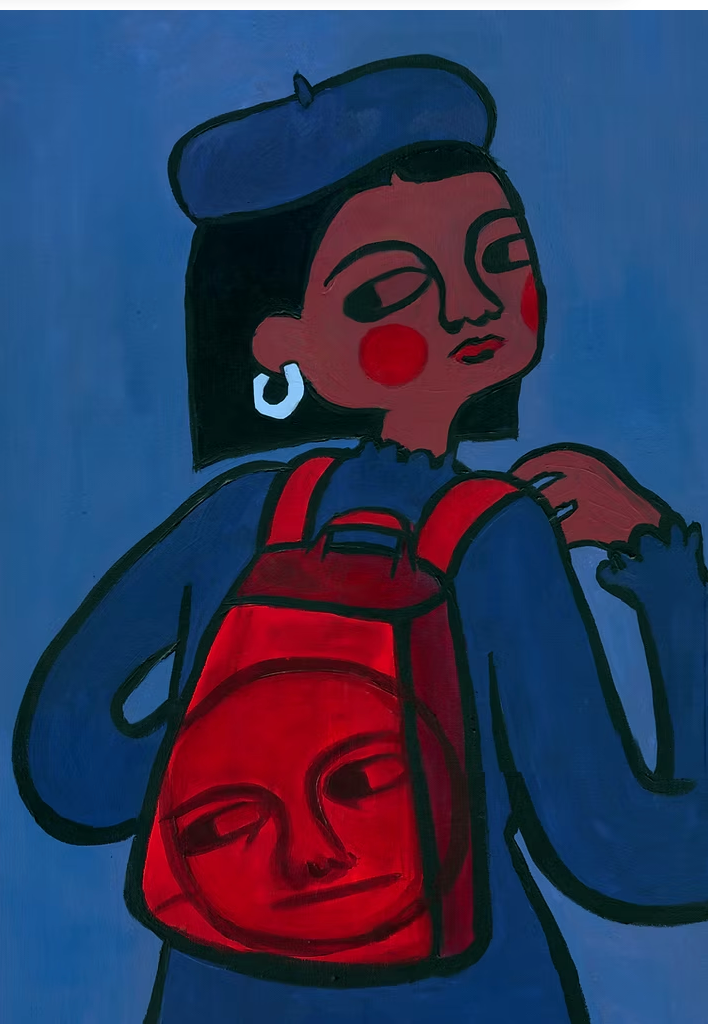
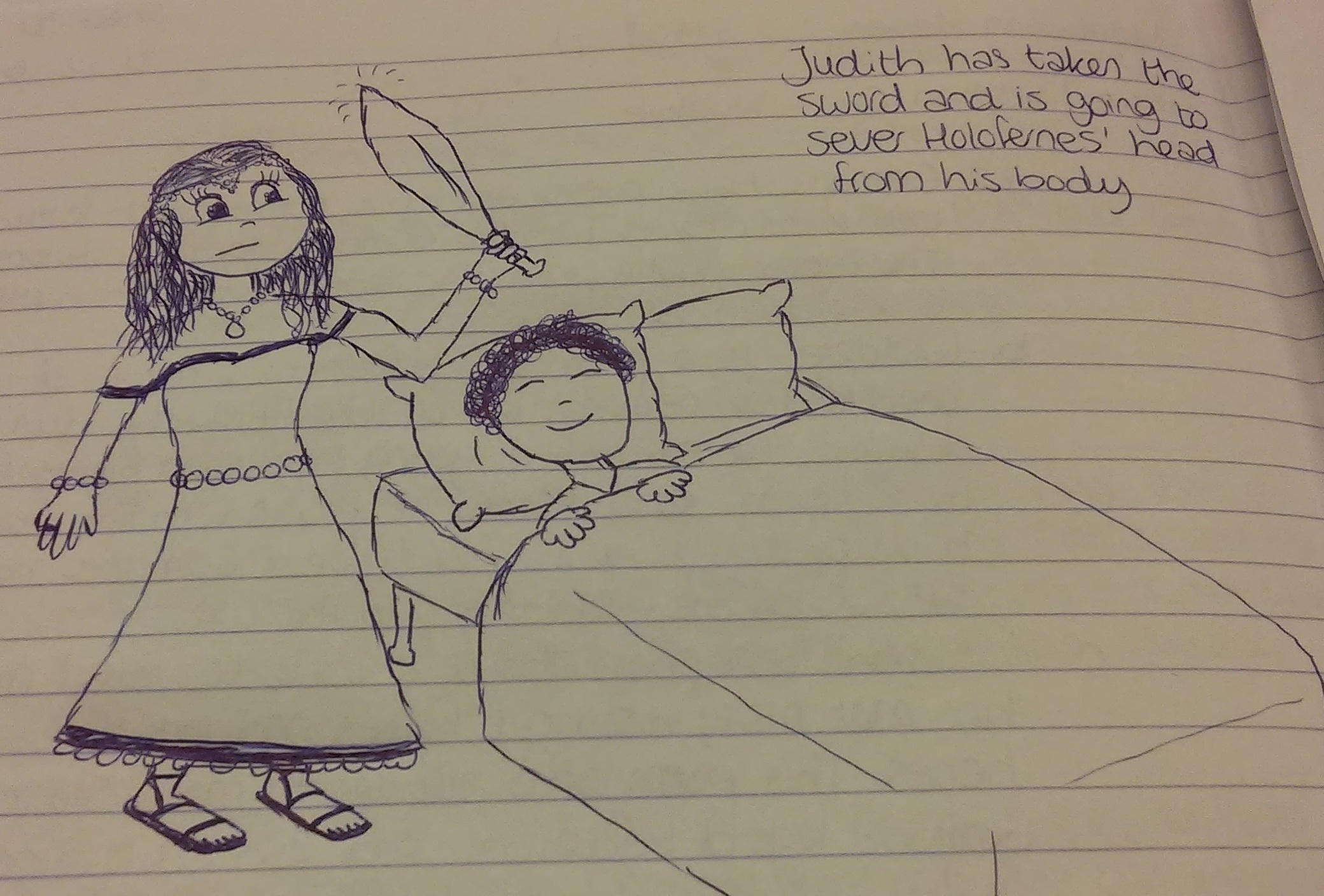
Important!!!!!
Girls in Trouble is the musical project of the extraordinarily talented Alicia Jo Rabins. This is a song from Judith's perspective, of course. Lyrics here.
Paul Tran is a contemporary poet based in Madison, WI now. Their first collection is called All the Flowers Kneeling. I'm sharing this as a screenshot in order to best preserve their line spacing. You can find a non-jpg version of the piece here, and audio of it (read by the poet themselves) here.
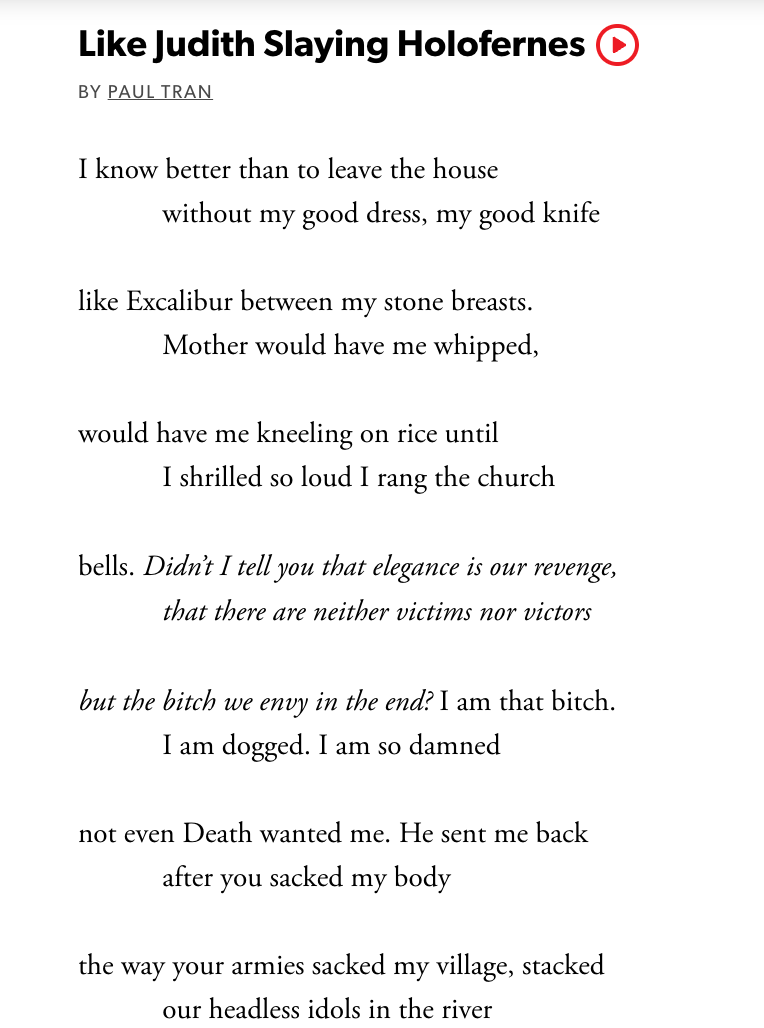
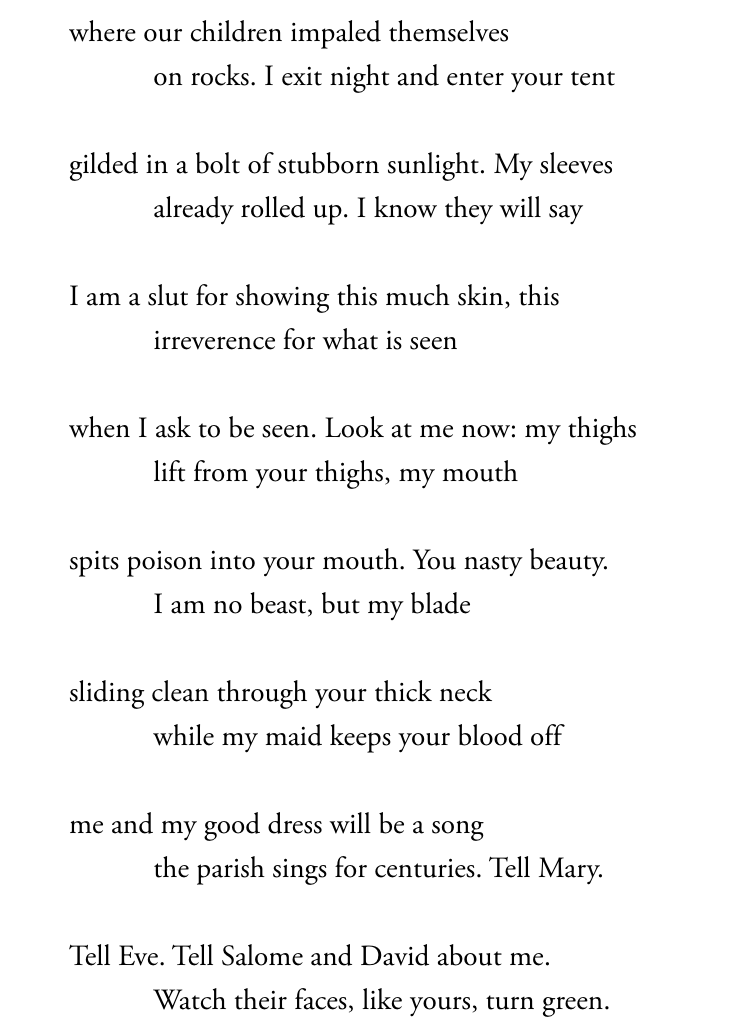
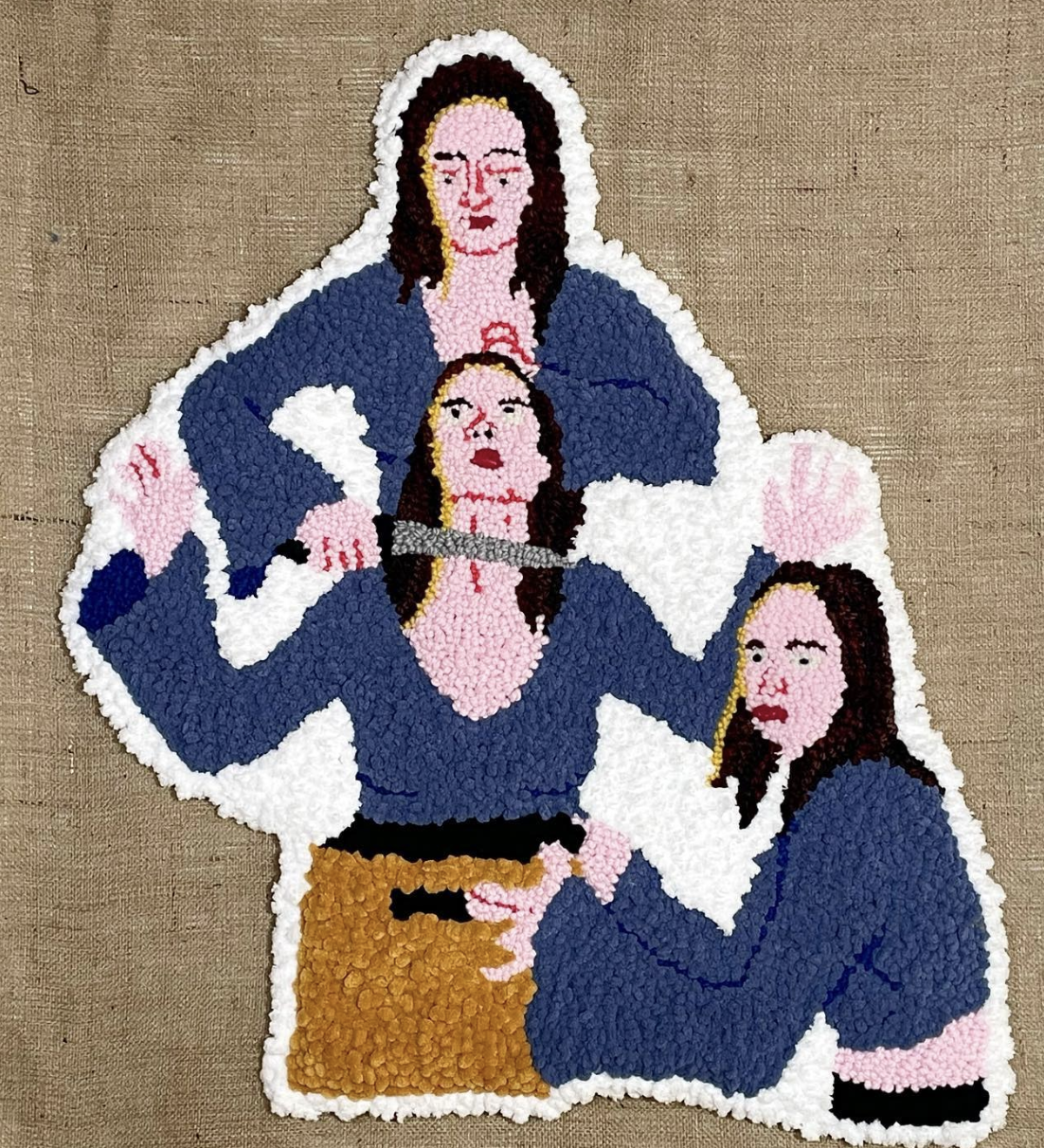
🌱
And, once again, a reminder that Life is a Sacred Text subscriptions are on a special through the rest of the month:
Offer someone(s) you love gift subscriptions – 10% off through December!
Get in on group subscriptions! For 20% off.
And personal subscriptions are also 10% off through the end of the month:
A note on the subscription model:
I want my work to be as accessible to as many people as possible, in as many ways as possible. That's why the Monday essays are free, and why we donate subscriptions to anyone for whom paying is a barrier to the House of Study posts.
I also believe people should be paid fairly for their work. Needless to say, these two values sometimes seem to be in conflict, but I do what I can to find a fair balance. I offer many resources for free, and charge for others. When you donate generously or pay at the top of our scale, that helps support the work I do, provides access for those who have fewer resources, pays for the infrastructure and the technical and practical support that it takes to do this, and helps us keep the work sustainable.
And as always, if you want in to the Thursday space but paying isn't for you now, just email support@lifeisasacredtext.com and we'll hook you up.
And if you’d like to underwrite one of these donated subscriptions, you can do so by signing up at one of the higher subscription points.
And if it resonated with you, please share this post.
Sending a big pile of blessings and goodness your way. 💕
A couple of other Hanukah posts from the archives:
The history:
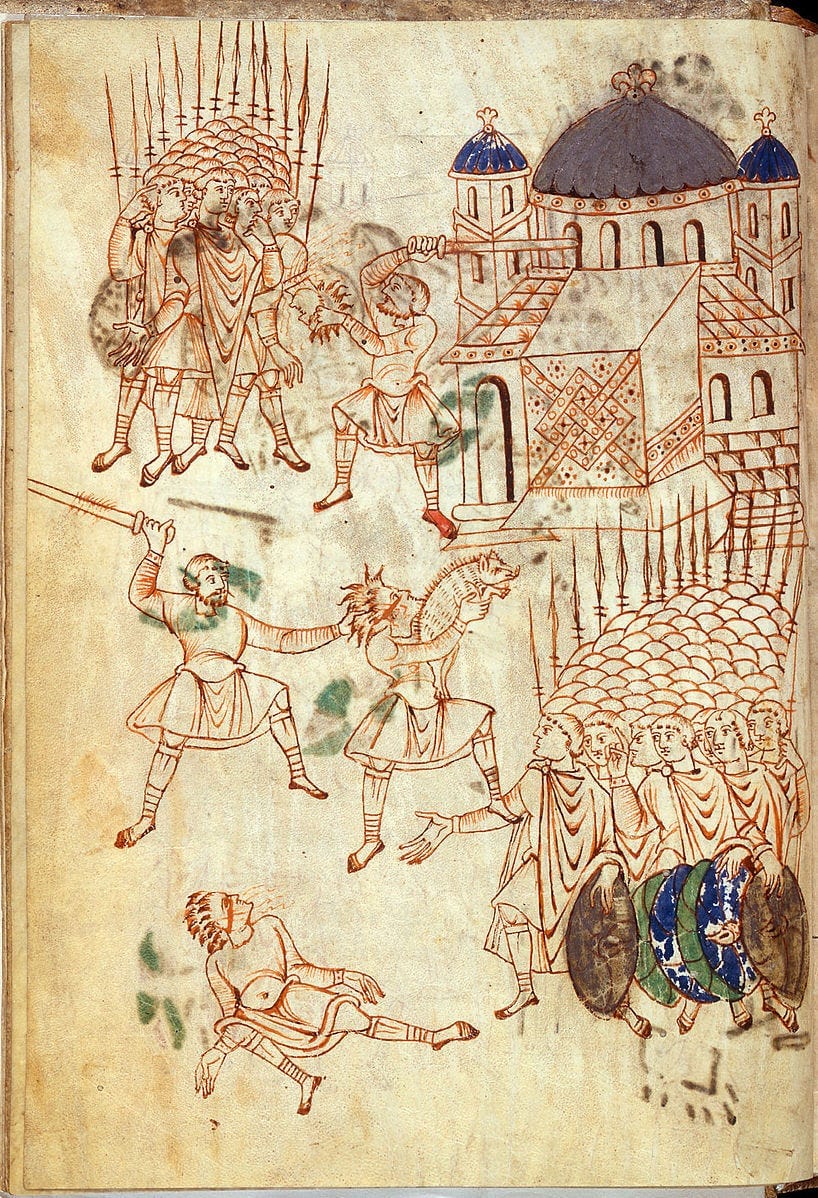
And then what it means to integrate the history into an adult relationship with Judaism that's willing to go beyond facile answers and into the Big Bigness:

And there's also this wild ride about how we get from the miracle of an unlikely military victory to the miracle of miraculous oil:
